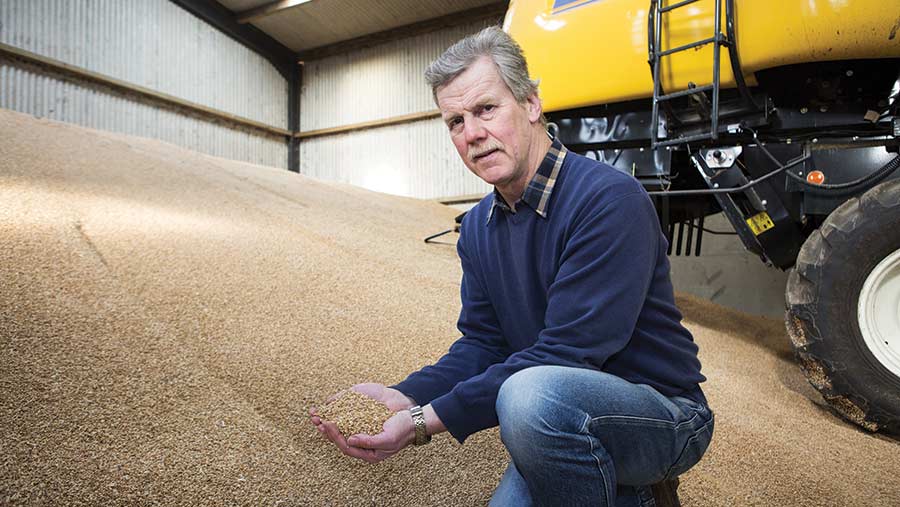Farmer Focus: Cereal market treated differently from milk
 Robert Moore
Robert Moore The monsoon season has finally arrived with a vengeance! After a very welcome prolonged spell of dry conditions in October, the weather gods are now making up for it.
I have just driven around the farm and there are lakes everywhere, ditches overflowing and about a foot of water running down our back road.
Thankfully field work is pretty much up to date. All our winter crops have established well, with the last field drilled after potatoes on 4 November.
See also: Read more from our arable Farmer Focus writers
Two ploughs, a power harrow/drill and plenty of work lights got it into a nice dry seedbed just two days before the weather broke.
Although a bit late, we have had to drill in November in some previous years and it seems to work OK in a well-drained field.
So I have been catching up on office work and assessing how the harvest will turn out financially.
There has been much talk about poor milk prices recently, but looking back at cereal prices I see that current prices are down by 30% from the highs I was receiving in 2012/13.
This is similar to the drop in milk prices, and yet milk producers appear to be getting a support payment from the EU just because prices have fallen.
This seems both unjust and divisive – and not how public money should be used. I have been growing cereals for 35 years now and have never received extra support as a result of poor prices.
Other sectors have also had to accept – and work with – volatility over the years. If some within the milk sector can’t accept the same, then maybe they are in the wrong business.
However, all this pales into insignificance compared with the terrible recent events in Paris. Having lived through 30 years of mindless, indiscriminate violence here in Northern Ireland, my thoughts are very much with the people of France who have lost loved ones and with those who will have suffered life-changing injuries.
We must support democracy, free speech and our way of life; right now, that is far more important than the price of wheat or milk.
Robert Moore farms on the Molenan Estate in Londonderry, Northern Ireland, where his family have farmed for more than 200 years. He switched to arable production in the late 1990s, away from beef and sheep. He still has a small suckler herd on unsuitable arable land

